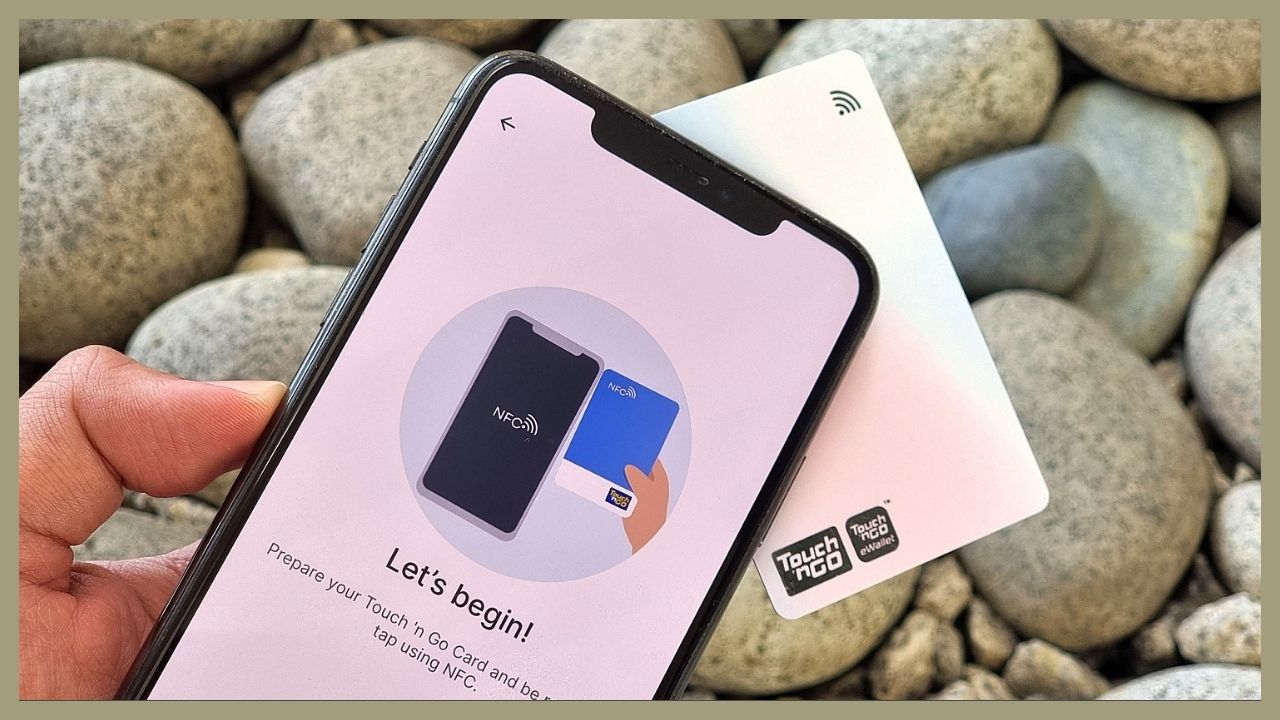NFC business cards are slowly surpassing traditional business cards as the latest in cutting-edge networking technology for entrepreneurs and business owners. In this post, we’ll explore some of the benefits, applications, and concerns surrounding this new way of networking and why it could be a great (and cost-effective) benefit for solopreneurs and small business owners to consider incorporating one or more NFC (near-field communication) devices into their networking arsenal.
Table of Contents
Listen as a Podcast
What Are NFC Business Cards?
Exchanging contact information has historically been one of the most cumbersome parts of any networking interaction.
Near-field communication (NFC) business cards simplify this process by allowing you to share contact information with others via a single tap of a mobile device. These cards have two components: a digital business card and an NFC tag. These NFC tags come in various forms such as badges, lanyards, physical cards, bracelets, and many more depending on the brand you choose.
Companies such as Dot, Linq, and Blk are becoming popular for helping to simplify the networking process by allowing frictionless contact exchange between individuals using a device that many of us always have by our side – cell phones.
After tapping an NFC tag, users are navigated to a custom landing page containing any relevant links or media that you’d like to share with others.
Whether it’s a personal website, social media profile(s), or a creative portfolio – these landing pages are an effective way to drive organic traffic toward anything that is important to your brand or business.
6 Benefits of NFC Business Cards
While there are many benefits for solopreneurs and small business owners to leverage NFC business cards over traditional paper business cards, let’s explore six of the most common benefits that entrepreneurs may realize from utilizing contactless business cards:
- Convenience & Engagement
- The convenience of tapping a device is much faster than exchanging business cards.
- Most people will have an Android or iPhone device with them at networking events.
- NFC business cards ensure your contact information is received successfully by the other person
- This prevents someone from losing or damaging your business card.
- Impression & Uniqueness
- NFC business cards offer a unique and memorable way to leave a first impression on new professional contacts.
- For tech companies and founders, NFC tags offer a great way to incorporate modern tech into an antiquated networking process.
- Environmental Impact
- NFC business cards are battery-free devices.
- Adopting NFC business cards can reduce or eliminate the need (and cost) of continually purchasing and reprinting paper business cards.
- Reduced Paper Waste: NFC business cards significantly reduce the need for paper-based materials, contributing to a reduction in paper waste and overall carbon footprint.
- Pricing
- Various pricing models are offered depending on your individual or company needs.
- Subscriptions are often inexpensive
- One-time fee pricing models exist if you prefer to avoid subscriptions (like me…)
- Customization
- NFC tags come in many types and can typically be customized to fit your brand including featuring logos and/or images.
- NFC business cards can be programmed to display different content based on user interactions, enabling personalized experiences for recipients.
- Third-party integrations are also available to help sync new connections into existing CRM or email marketing systems.
- Analytics/ROI
- Many NFC business cards offer analytics as part of their software.
- These analytics commonly offer insight into the engagement rates of each interaction such as:
- Views
- Clicks
- Click-through rate (CTR)
- Impressions
- and more…
- These analytics make it possible to optimize your landing page links and media to ensure the best-performing results for your business needs.
- Traditional business cards don’t offer any tangible insights on performance or engagement – making it hard to derive value from each set of cards.
- Paper business cards have to be purchased continually whereas NFC business cards can be purchased as needed for individuals, events, or employees.
Real-World Use Cases
An additional benefit of leveraging NFC business cards is that they are not limited to just networking events, but instead, can also be used to enhance sales and marketing strategies or provide a medium for creative entrepreneurs to display their work as well.
Let’s take a look at some of the alterative ways that these devices can be used to improve your brand’s reach and engagement in various social scenarios:
- Networking Events
- NFC tags such as lanyards, bracelets, or stickers could be a unique and engaging way to get the most out of networking opportunities at large conferences or events including performance analytics.
- Sales & Marketing
- With time, this data could be used to determine the most effective events, sales, and marketing strategies for your brand or company.
- Organic traffic can be driven toward specific social platforms, funnels, product offerings, or services.
- Creative Industries
- NFC business cards offer a great way for creators such as videographers, photographers, developers, artists, and many others to showcase their portfolios in a trackable way.
Exploring Potential Challenges
- Technology Barriers
- Depending on the person, some may find an NFC business card unnecessary or confusing and may prefer to exchange a traditional business card instead.
- Cost Considerations
- Subscription models may be unattractive to solopreneurs and small business owners looking to keep monthly expenses to a minimum.
- Privacy & Security
- Automatic downloads or transferring of data may be a security concern for anyone who is greatly concerned with network security.
- Some individuals may not feel comfortable exchanging their contact information through a third-party application that they have never heard of.
- Compatibility
- Some smart devices may be incompatible with NFC tags and do not have the functionality required to support the tap feature.
Conclusion
I expect that the usage of NFC business cards will continue to rise over the coming years as entrepreneurs continue to look for more savvy and effective ways of networking.
In a post-pandemic networking world, NFC tags offer a touchless information exchange process that I believe will continue to see a rise in popularity similar to the way QR codes have in recent years.
Gone are the days of pockets filled with business cards as mobile devices increasingly become more of an integral part of our everyday lives and the networking process has been ripe for innovation for quite some time.




